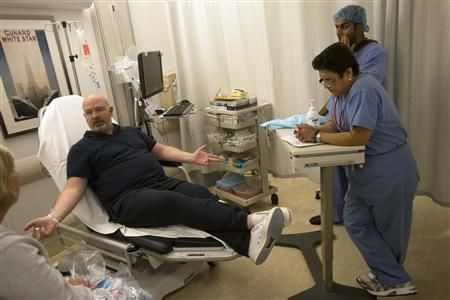New Kidney Diagnostic Test Developed From ‘Pregnancy Tester’ Plus Nanotechnology

A breakthrough in diagnostics combines the features of a pregnancy tester and nanotechnology to detect signs of a kidney disease. Bio Nano Consulting, creator of the medical tool called the quantitative electrochemical lateral flow assay (QELFA), aims to help a million people in the United Kingdom evaluate and monitor their kidney health. Details on this were published in the Institution of Mechanical Engineers’ (IMechE) latest report.
The QELFA device uses nanoparticles on the urine test, which delivers results in seconds. Doctors can monitor their patients’ condition by linking the device to their surgery through mobile technology. Helen Meese, lead author of the IMechE report, said that the QELFA tool could save the National Health Service millions of pounds each year. However, commercialisation of developments in nanotechnology has to be prioritised so people could maximise this potential, especially in advancing medical services. Kidney care costs the NHS more than 1.4 billion pounds each year.
The IMEchE report recommends amendments in the government’s strategic plan on nanotechnology to show the relevant changes that have transpired during the past 5 years. They also request for added state funding of 36.5 million pounds for another 3 years. Moreover, the institute calls for coordination with other sectors in creating venues for raising awareness on new technologies. The support of industries would make it possible for emerging technologies to be produced for public welfare.
Currently, there is no available device for daily monitoring of the development of a kidney disease. The QELFA is potentially an easy-to-use tool that could be optimised for this purpose. In the UK, an average of 19 renal failure cases are reported every day, according to the NHS Kidney Health Report. After 3 months, only two of which would be able to have a transplant while around 84 percent will have to sustain dialysis treatment, which would cost at least 25,000 pounds annually. Other lesser degree of kidney dysfunction may cause vulnerability to other dreaded illnesses.
In January, the Small firms' Merit Award for Research and Technology (SMART) has granted funding award for further development of the BNC technology. CEO David Sarphie has expressed gratitude for the prestigious grant from Innovate UK. He says that the award affirms the significance of the technologies being created.
To send feedback about the content, email: jm_panganiban@hotmail.com





















